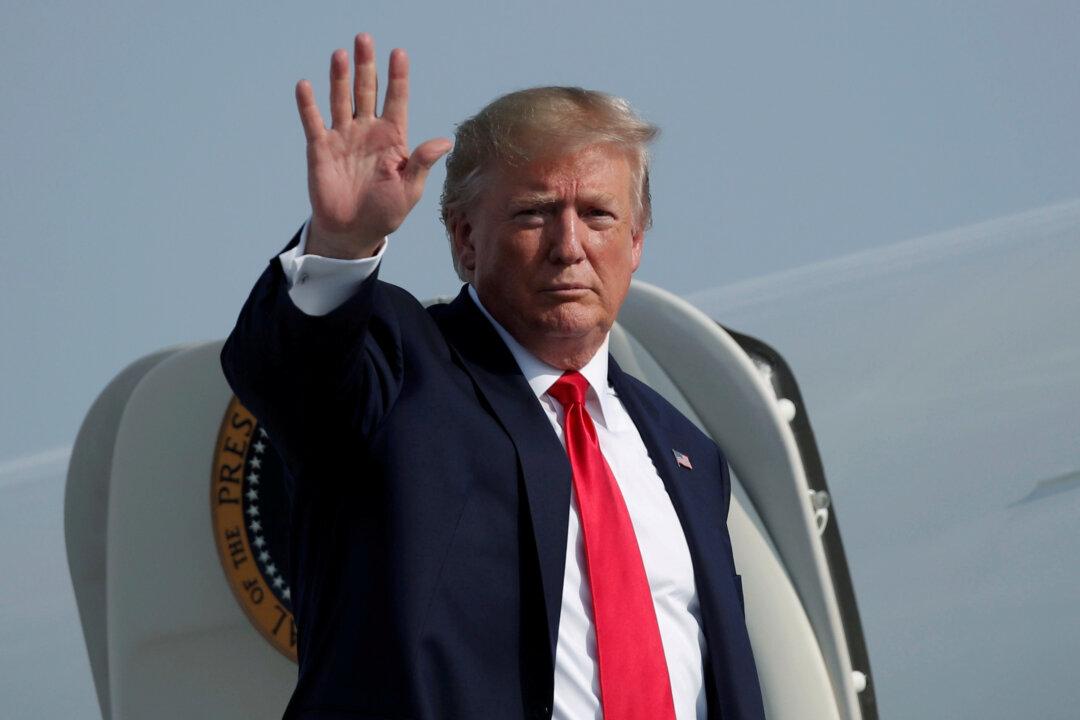President Donald Trump said trade talks with China are scheduled for Aug. 29 “at a different level,” days before tariffs on more than $100 billion worth of Chinese goods are due to take effect.
“There is a talk scheduled for today at a different level,” Trump said in an interview with Fox News Radio, without providing further details.





